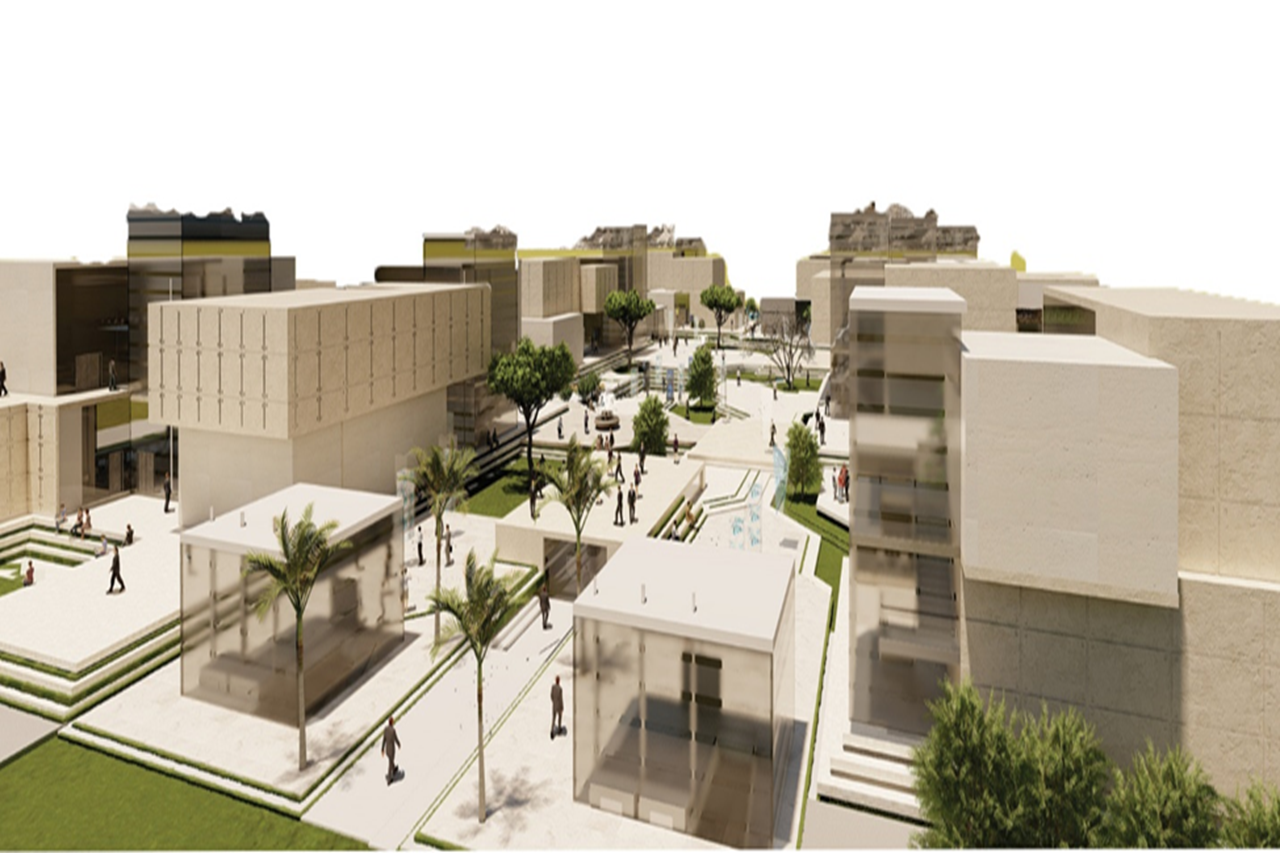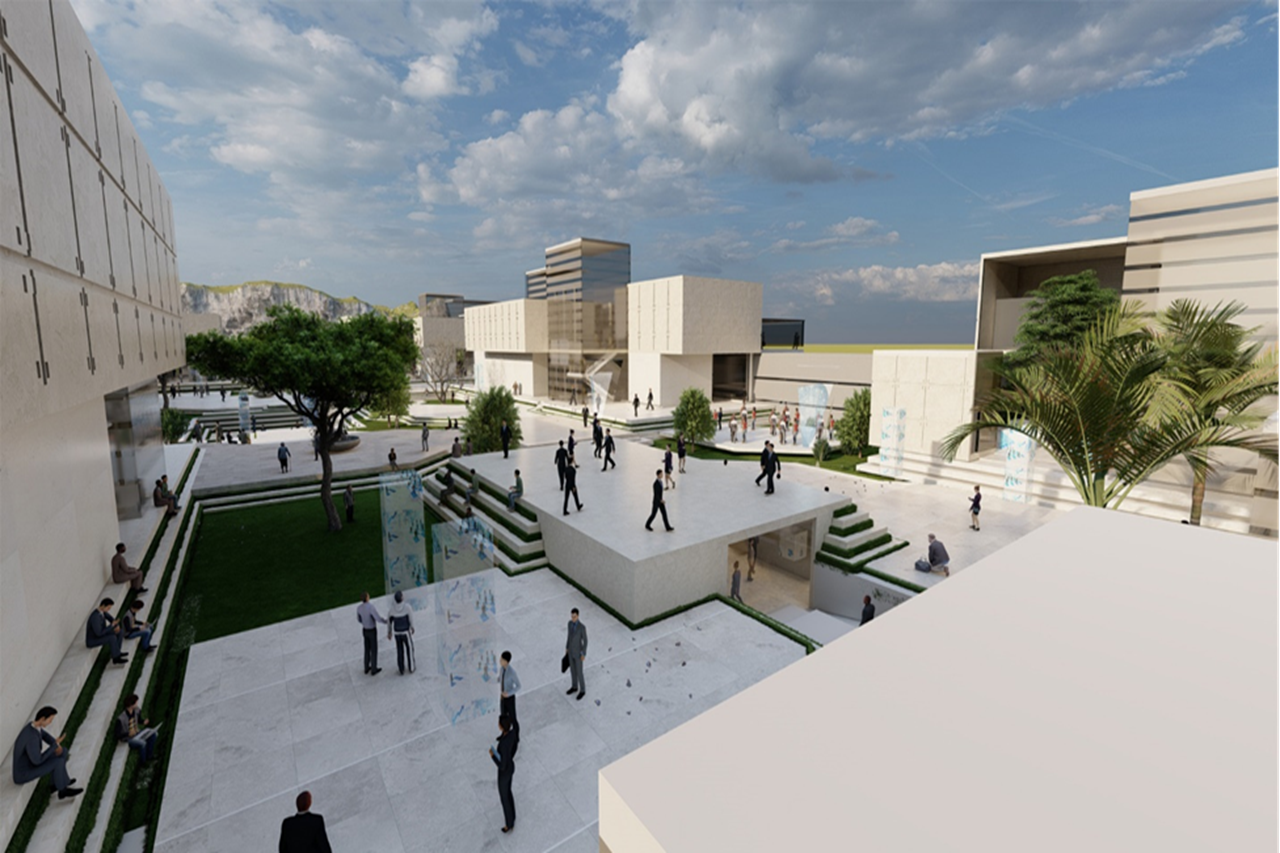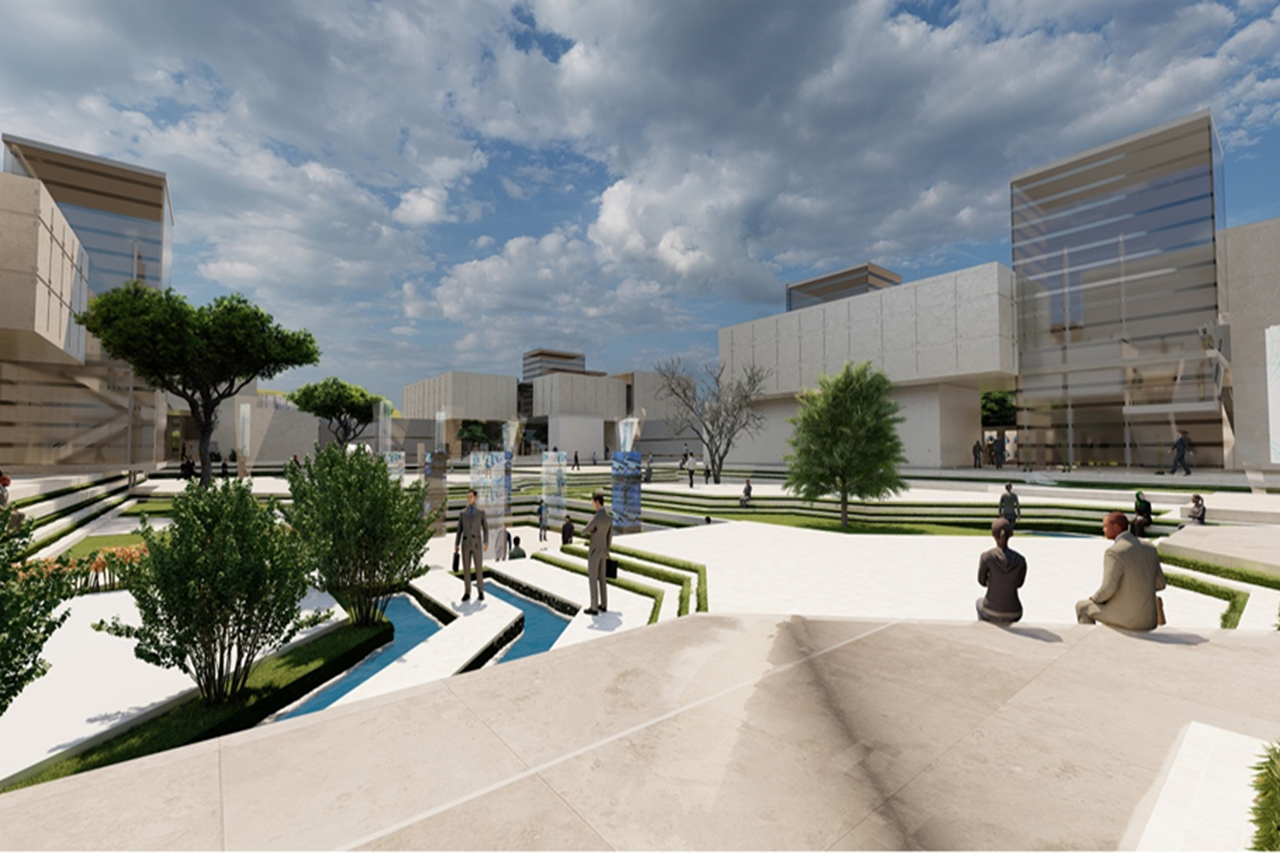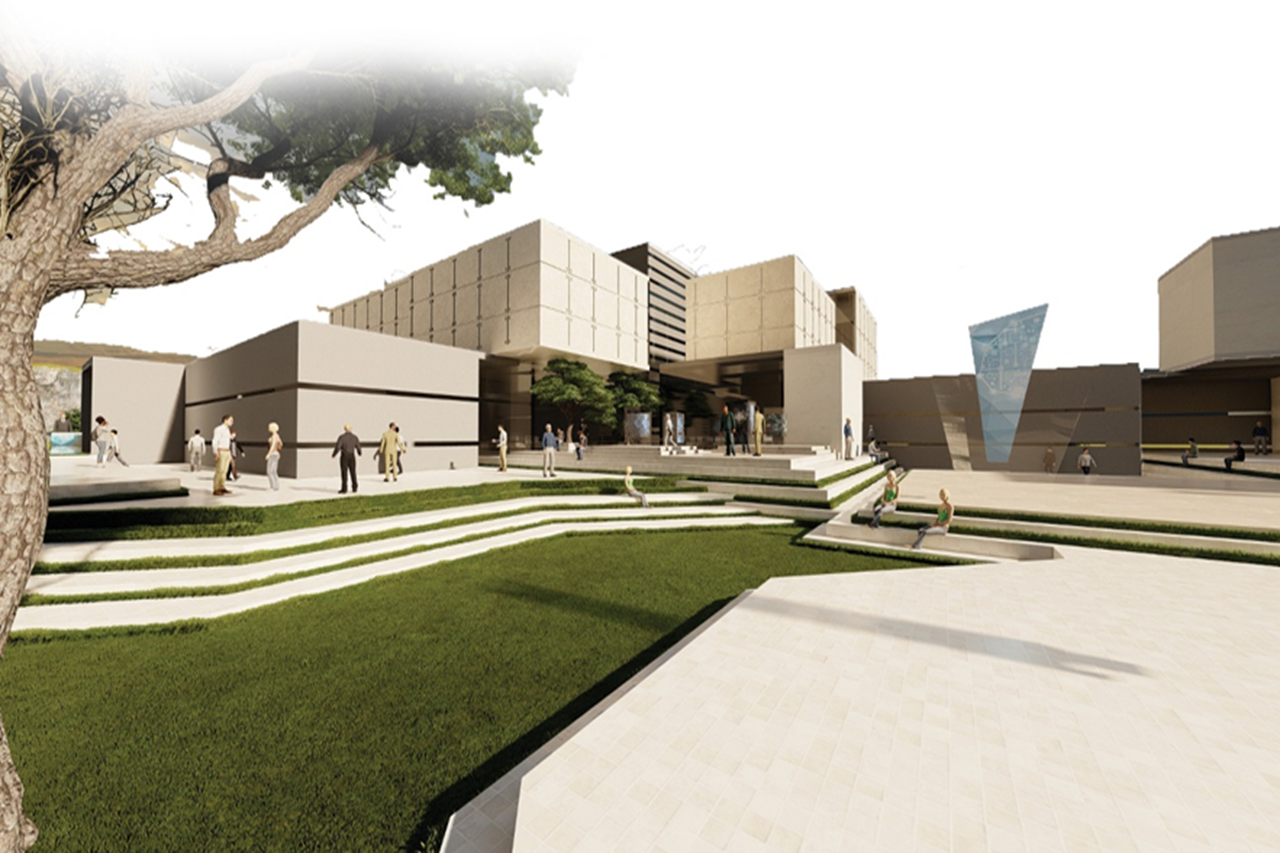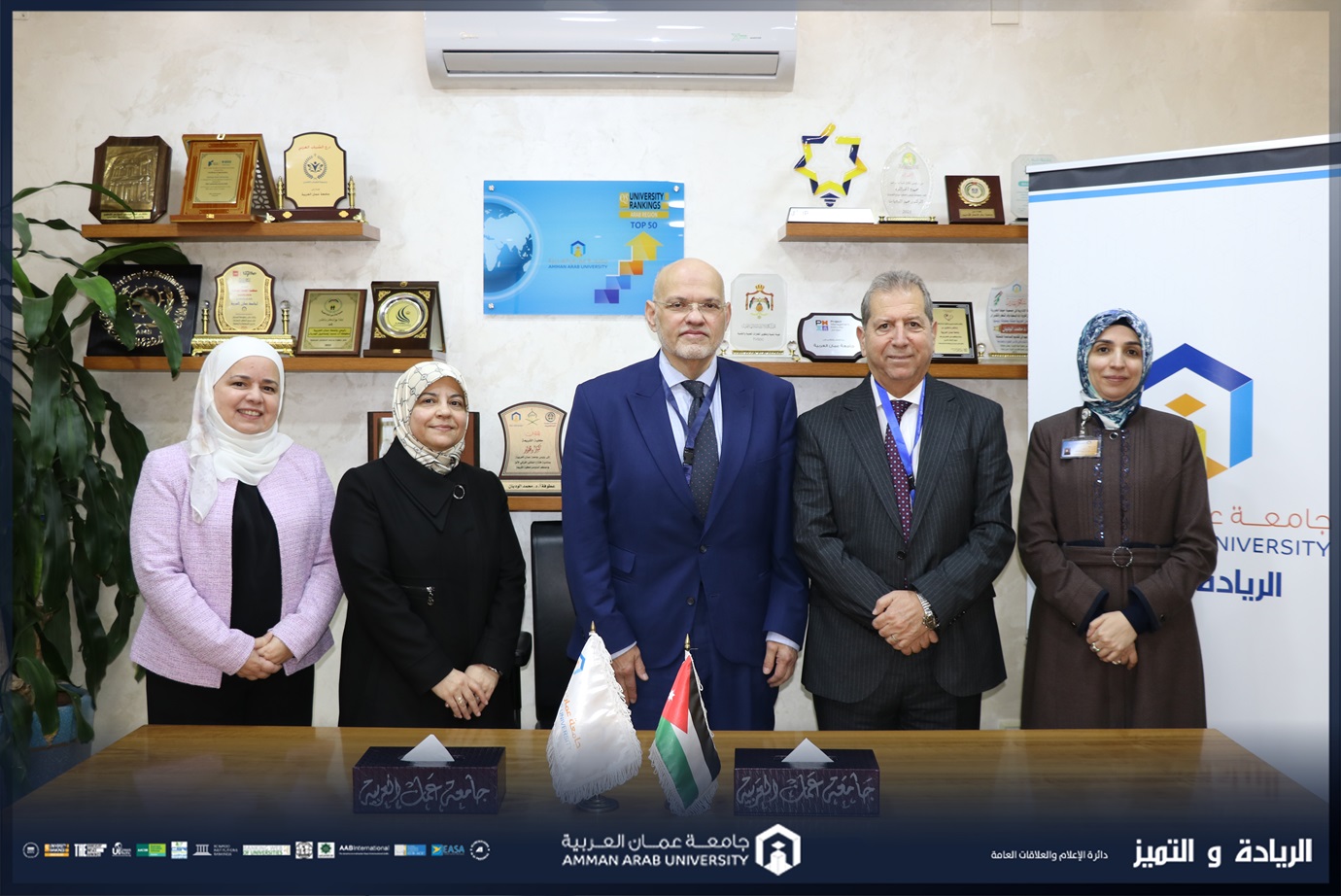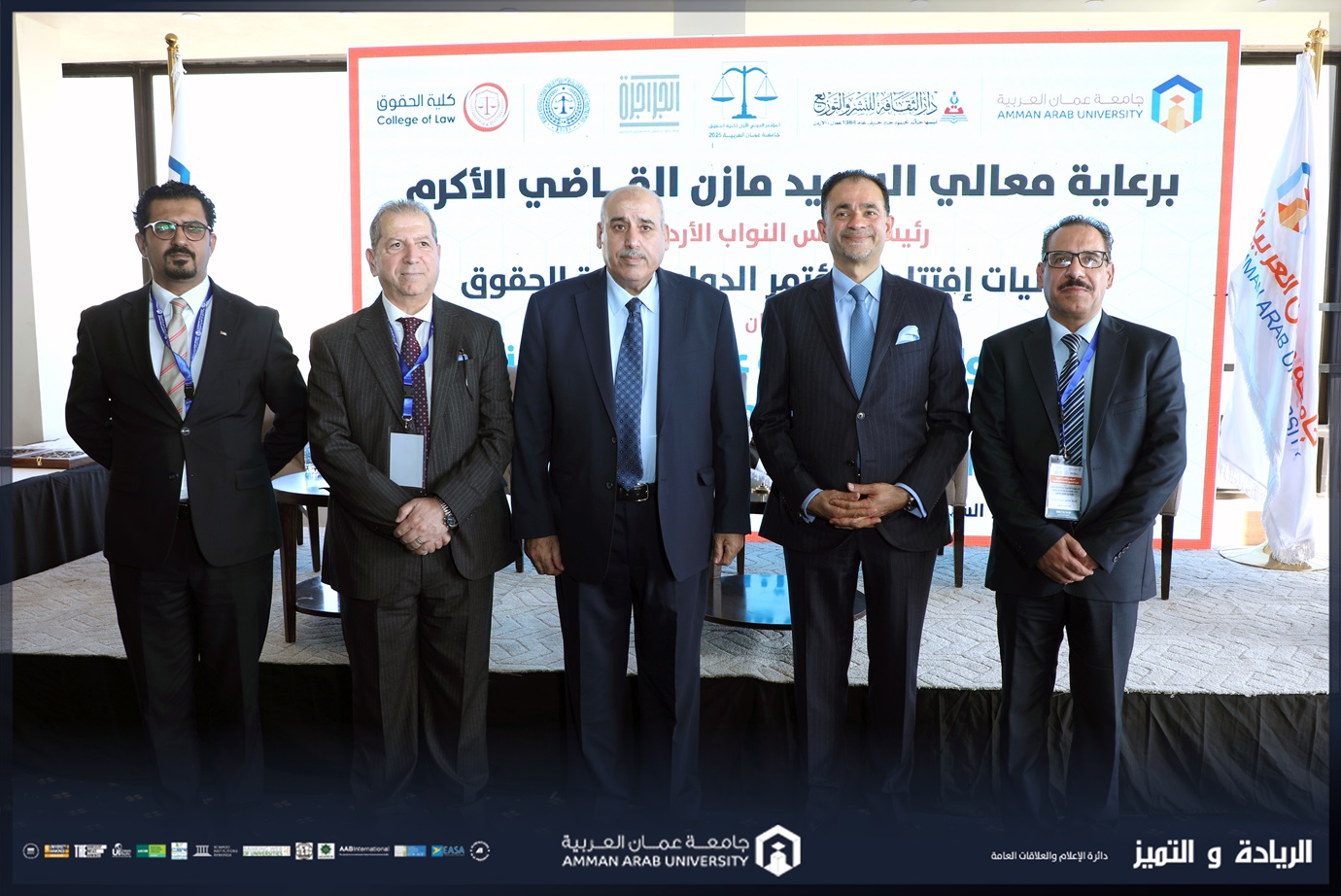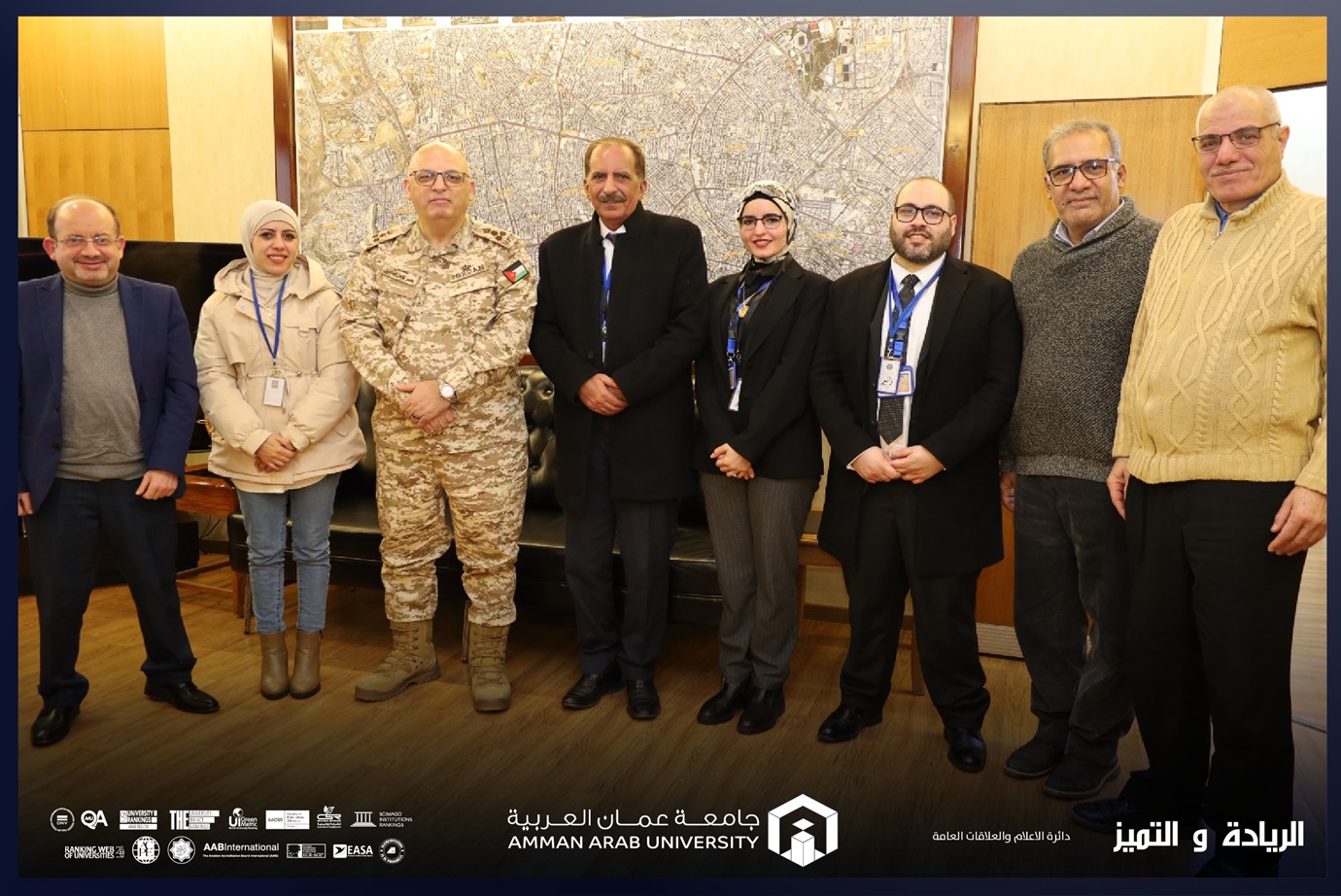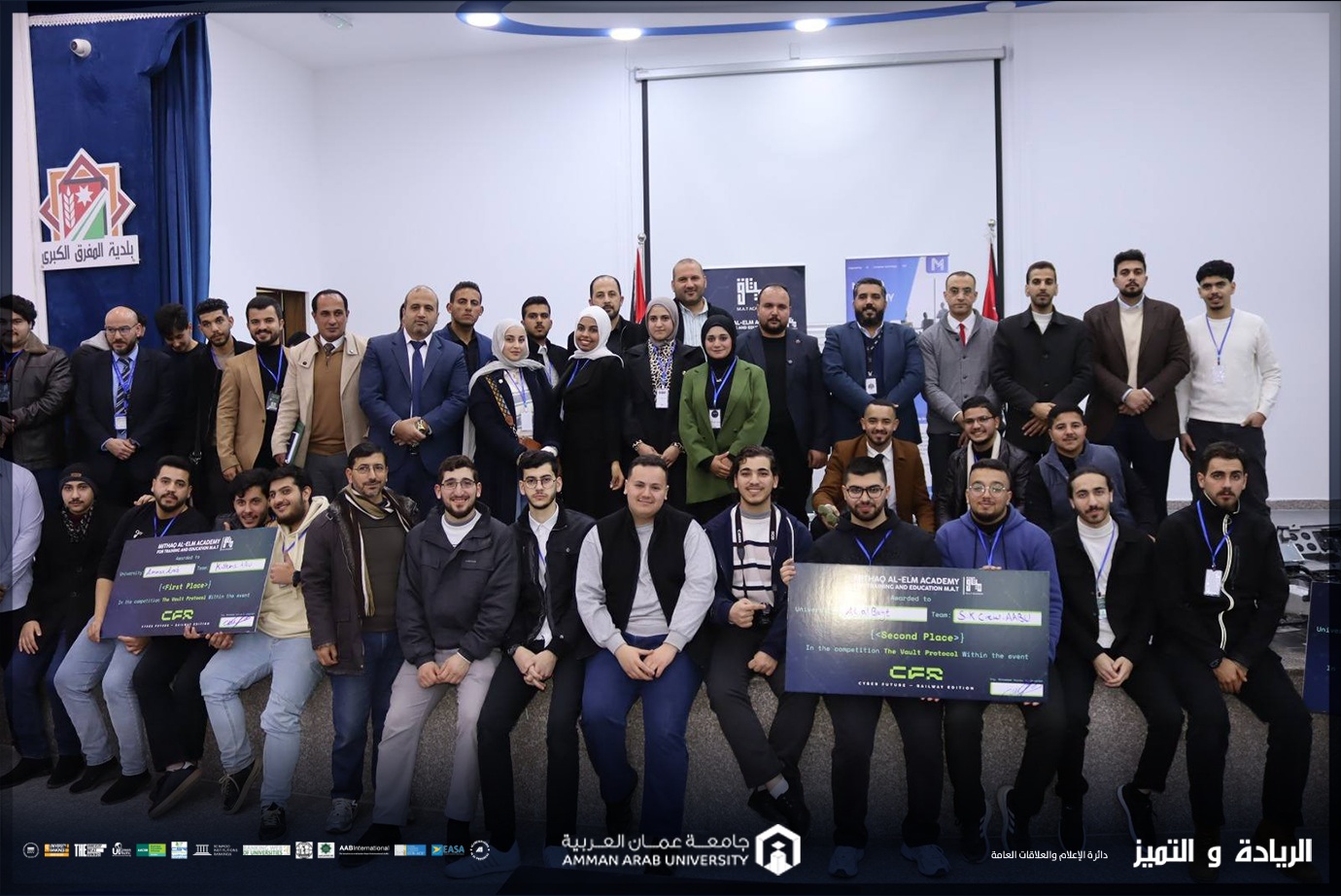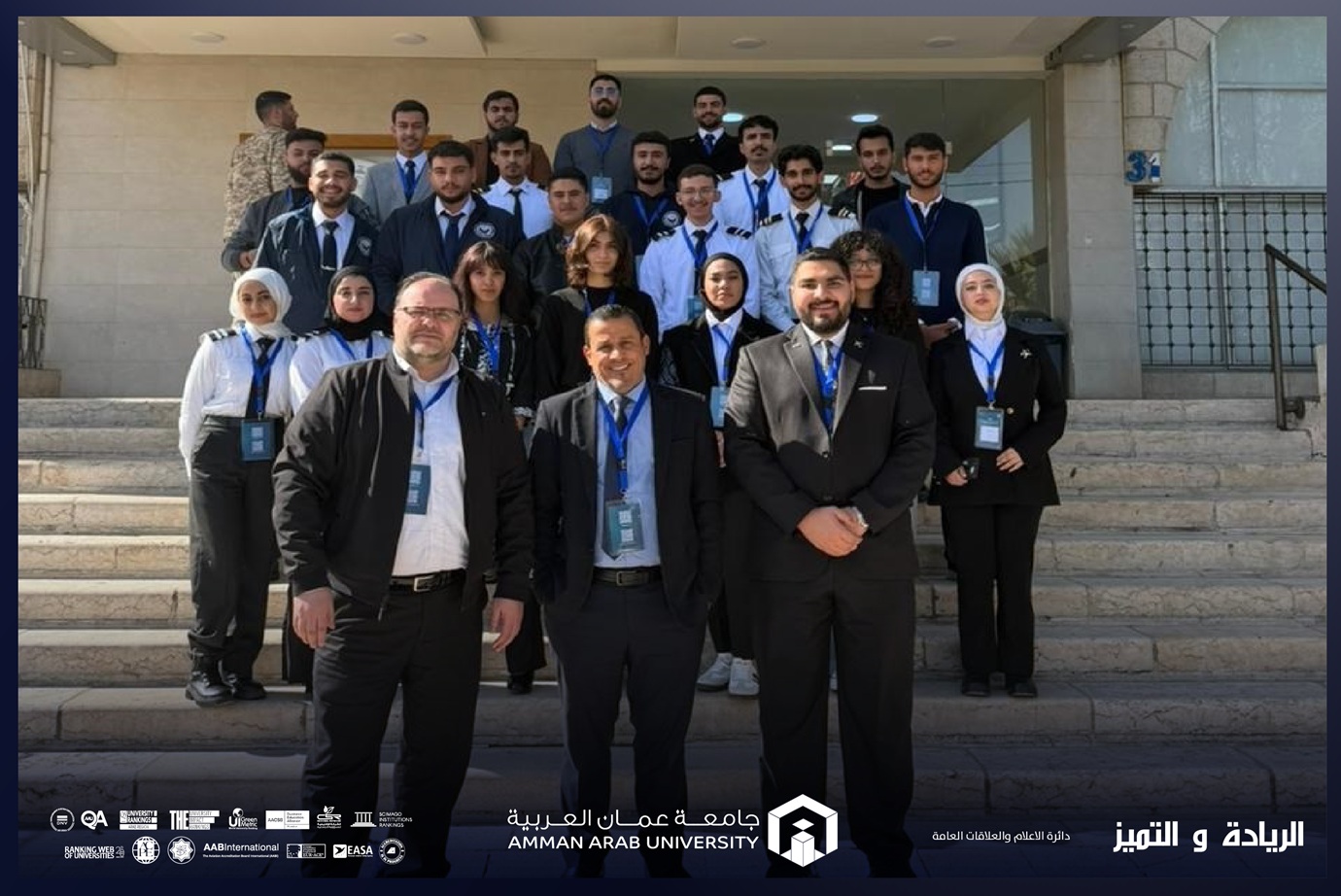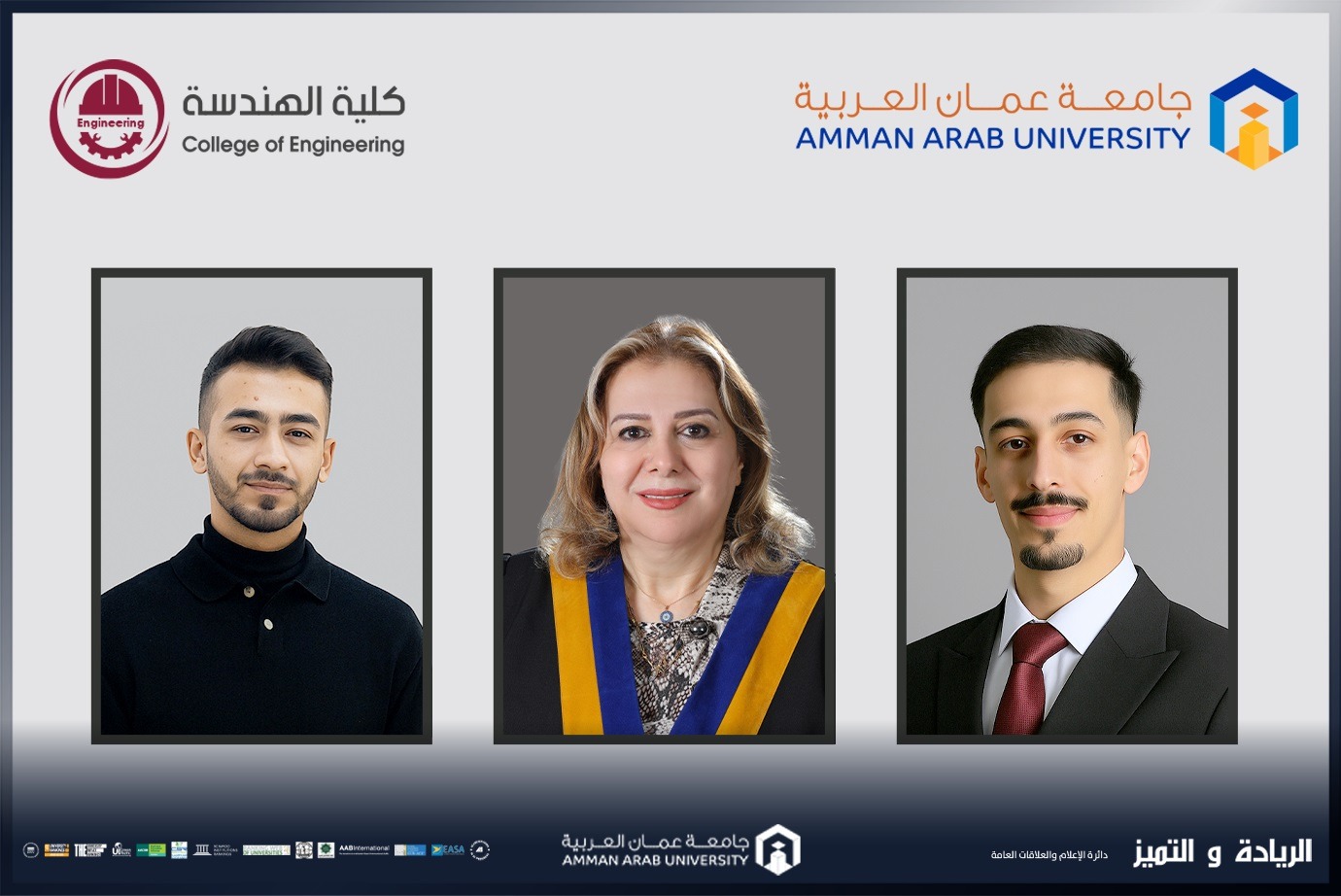
Architecture Department at Amman Arab University Qualifies with Smart, Sustainable Project in 12th National Technology Festival
Demonstrating Amman Arab University’s commitment to leadership, excellence, and supporting student innovation while aligning education with contemporary demands, the Department of Architecture has qualified to participate in the 12th National Technology Festival. Organized by Al Hussein Technical University under the slogan "Youth Leading Technological Transformation and Innovation," the department will present an innovative architectural project titled "Artificial Intelligence Technology Center." This initiative follows the directives of Professor Dr. Mohammad Al-Widyan, President of Amman Arab University, and under the direct supervision of Dr. Anwar Al-Assaf, Dean of the College of Engineering, as part of the college’s efforts to enhance academic impact and align educational outcomes with sustainable development goals and labor market needs.
The project was developed by graduates Ahmad Abu Nabut and Ahmad Al-Asakirah, supervised by Professor Dr. Hanan Ahmad, faculty member in the Department of Architecture. Selected among the top 20 projects from 107 shortlisted entries (out of 406 national submissions), it will be showcased during the festival. The project embodies a pioneering architectural model integrating sustainability, smart technologies, and innovative urban design. It aims to create a stimulating research environment aligned with green architecture principles.
The design features an internal courtyard to maximize natural light, enhance ventilation, and reduce energy consumption. It incorporates green roofs, shaded pathways, and locally sourced materials to minimize environmental impact. AI-supported systems further optimize real-time energy efficiency and waste reduction. Project studies confirmed the building’s form and orientation significantly reduce heat absorption, improve passive cooling effectiveness, and enhance user comfort. The design also allows high flexibility for future expansion, establishing a benchmark for smart, sustainable architecture in the Middle East.
On this occasion, Dr. Al-Assaf affirmed that the college’s participation in such national and international forums reflects its ongoing commitment to enhancing students’ innovative and practical capabilities, showcasing the university’s academic excellence, and aligning educational outcomes with labor market needs and sustainable development goals. This direction underscores the College of Engineering’s dedication to graduating qualified engineers capable of driving positive impact in their communities and professional fields.









